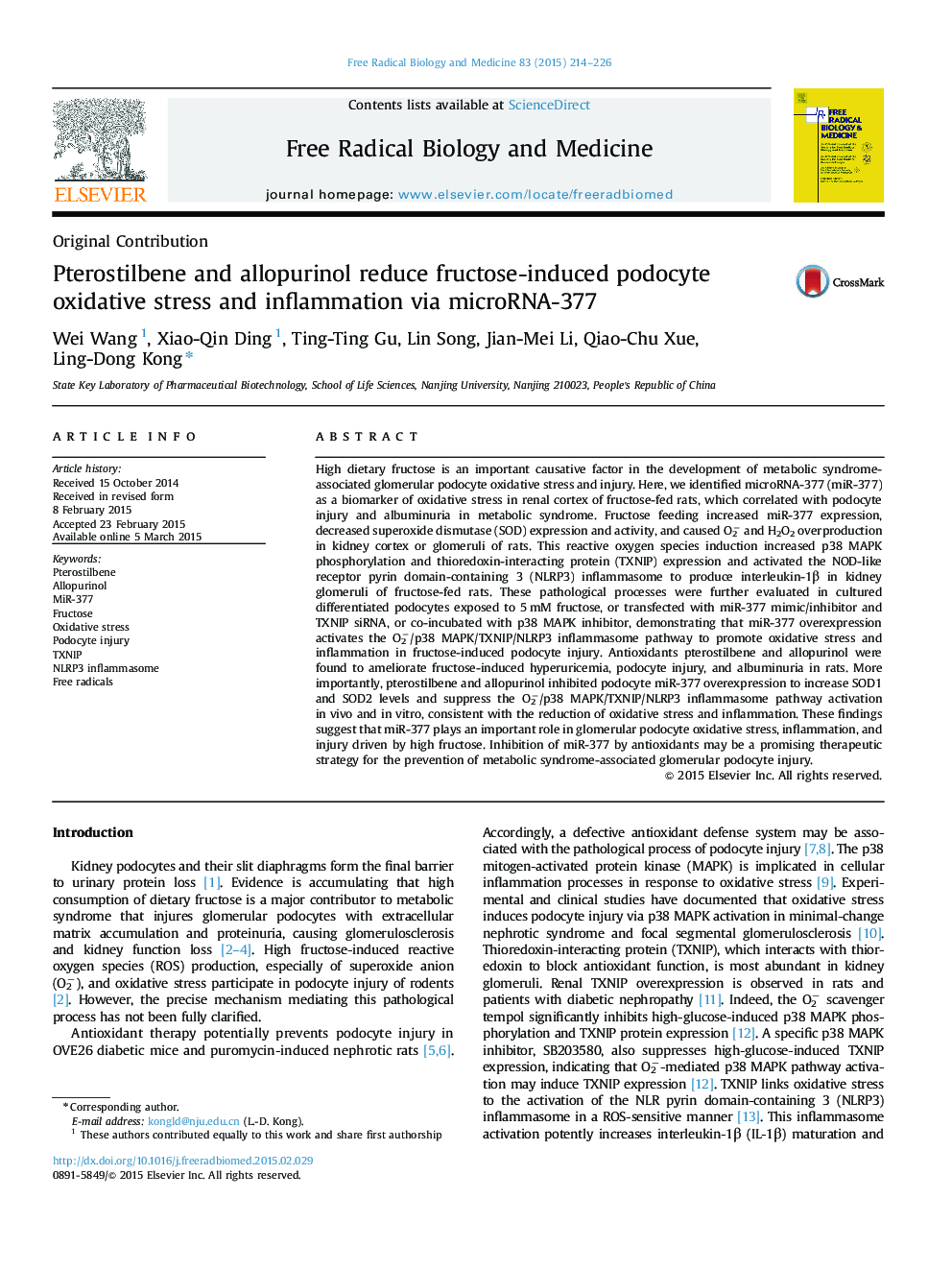| Article ID | Journal | Published Year | Pages | File Type |
|---|---|---|---|---|
| 1907967 | Free Radical Biology and Medicine | 2015 | 13 Pages |
•MiR-377 is a biomarker of oxidative stress in fructose-induced podocyte injury.•MiR-377 activates the O2−/p38 MAPK/TXNIP/NLRP3 inflammasome pathway in podocyte injury.•Pterostilbene and allopurinol inhibit fructose-induced podocyte miR-377 expression.•Pterostilbene and allopurinol suppress this pathway to improve podocyte injury.•MiR-377 inhibition by antioxidants is a therapeutic strategy for podocyte injury.
High dietary fructose is an important causative factor in the development of metabolic syndrome-associated glomerular podocyte oxidative stress and injury. Here, we identified microRNA-377 (miR-377) as a biomarker of oxidative stress in renal cortex of fructose-fed rats, which correlated with podocyte injury and albuminuria in metabolic syndrome. Fructose feeding increased miR-377 expression, decreased superoxide dismutase (SOD) expression and activity, and caused O2− and H2O2 overproduction in kidney cortex or glomeruli of rats. This reactive oxygen species induction increased p38 MAPK phosphorylation and thioredoxin-interacting protein (TXNIP) expression and activated the NOD-like receptor pyrin domain-containing 3 (NLRP3) inflammasome to produce interleukin-1β in kidney glomeruli of fructose-fed rats. These pathological processes were further evaluated in cultured differentiated podocytes exposed to 5 mM fructose, or transfected with miR-377 mimic/inhibitor and TXNIP siRNA, or co-incubated with p38 MAPK inhibitor, demonstrating that miR-377 overexpression activates the O2−/p38 MAPK/TXNIP/NLRP3 inflammasome pathway to promote oxidative stress and inflammation in fructose-induced podocyte injury. Antioxidants pterostilbene and allopurinol were found to ameliorate fructose-induced hyperuricemia, podocyte injury, and albuminuria in rats. More importantly, pterostilbene and allopurinol inhibited podocyte miR-377 overexpression to increase SOD1 and SOD2 levels and suppress the O2−/p38 MAPK/TXNIP/NLRP3 inflammasome pathway activation in vivo and in vitro, consistent with the reduction of oxidative stress and inflammation. These findings suggest that miR-377 plays an important role in glomerular podocyte oxidative stress, inflammation, and injury driven by high fructose. Inhibition of miR-377 by antioxidants may be a promising therapeutic strategy for the prevention of metabolic syndrome-associated glomerular podocyte injury.
Graphical abstractFigure optionsDownload full-size imageDownload high-quality image (215 K)Download as PowerPoint slide
